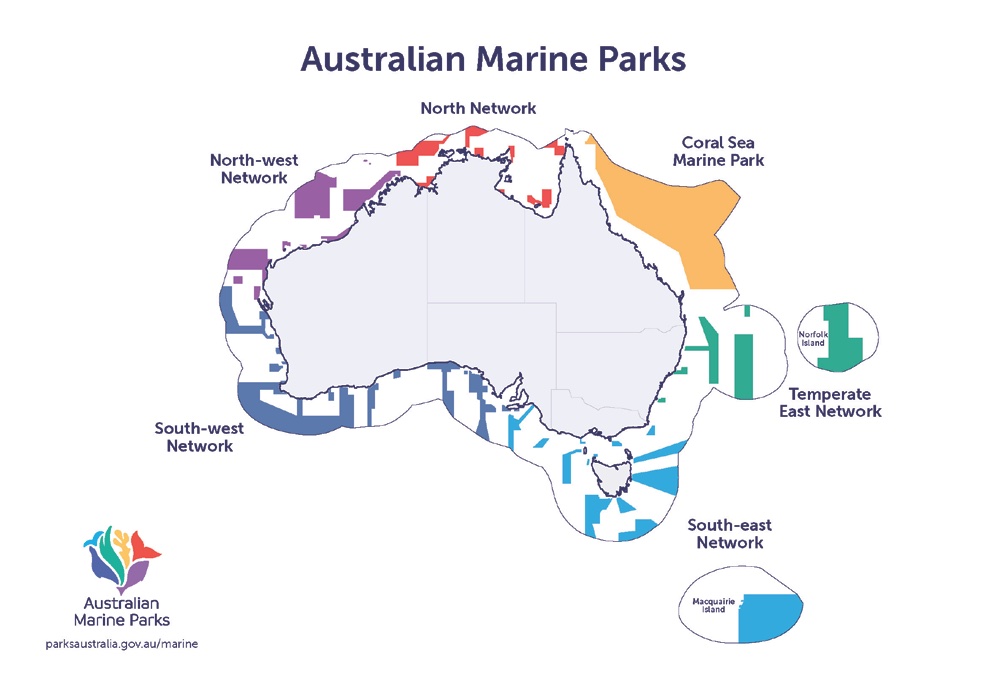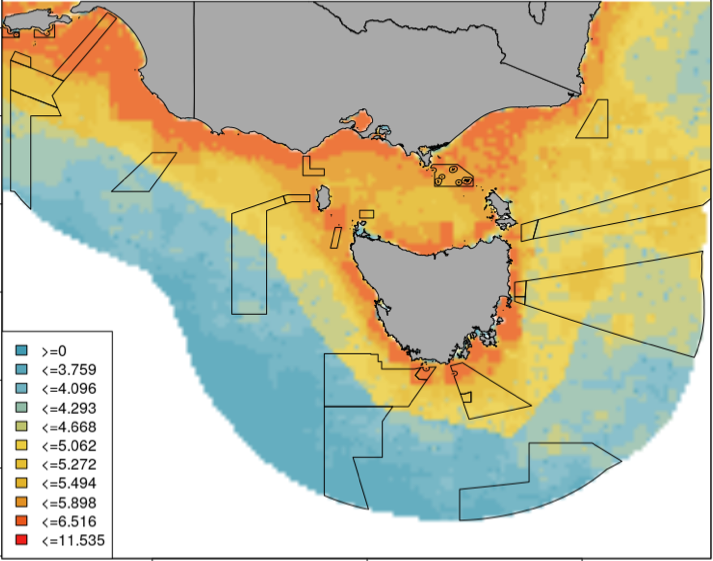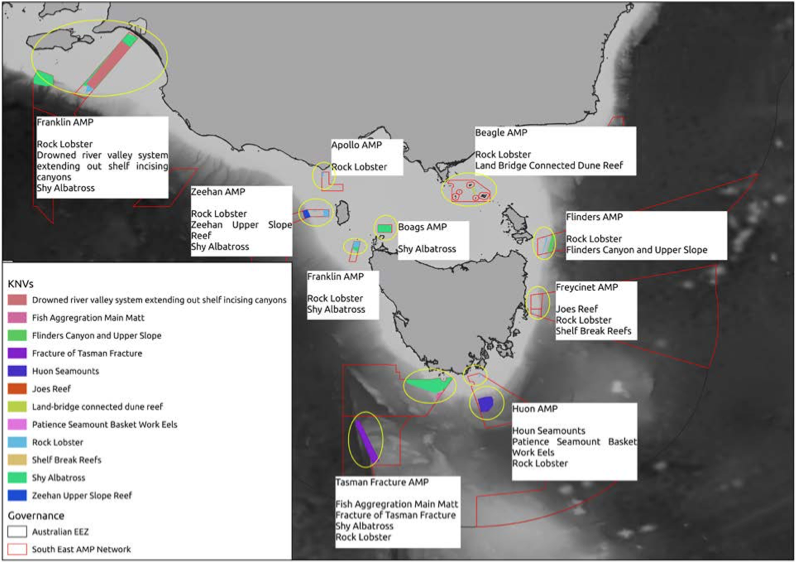Australia has over 30% of its national waters designated as Marine Parks, recognising that they are worthy of protection for nature conservation. However, like many other such similar areas across national and international waters, there is limited scope to measure and monitor their effectiveness as areas of conservation, or mechanisms by which to improve their efficacy. A framework to map, monitor and inform evidence-based management of Australia’s Marine Parks has been designed to remedy this situation, and has been road-tested using the South-east Marine Parks Network (chiefly off the coast of Victoria and Tasmania) as a pilot area. This adaptive management framework is modelled on the Monitoring, Evaluation, Reporting and Improvement (MERI) concept.

Having established a common nomenclature and hierarchy for the elements to be mapped, measured and monitored (i.e., ecosystem components within ecosystems within ecosystem complexes), as well as a classification system for human activities, pressures and drivers to be assessed, all information can be combined into a matrix to see where and how all these factors interact. In addition, the vulnerability of certain ecosystem components is also assessed, together with a risk of impact assessment by any activity or pressure. To identify which ecosystem components merit such targeted assessment, a set of criteria have been devised (based primarily on CBD’s EBSA criteria) that define areas of Key Natural Value. These areas are considered a priority for any subsequent management action for their conservation.



To assist in the understanding and communication of all possible scenarios, conceptual models have been developed for various ecosystem complexes that enable the hypothetical manipulation of linkages between different ecosystem components, pressures and drivers, and how outcomes of potential management measures may play out. With use and refinement, these models will become an important decision support tool that shows evidence-based links between management action and ecosystem reaction. The establishment of baselines, recognition of data gaps, and the identification of indicators by which to monitor change from those baselines has been achieved in the pilot study area, though not without difficulty. A series of lessons learnt and recommendations has been made by the authors of the pilot study, to be considered before the framework is applied at the national scale, not least of which is to establish robust data management protocols prior to commencing any of the steps in the MERI framework.
The full report on the design of a targeted monitoring programme to support evidence-based management of Australian Marine Parks and how it was piloted in the South-east Marine Parks Network can be found here.


